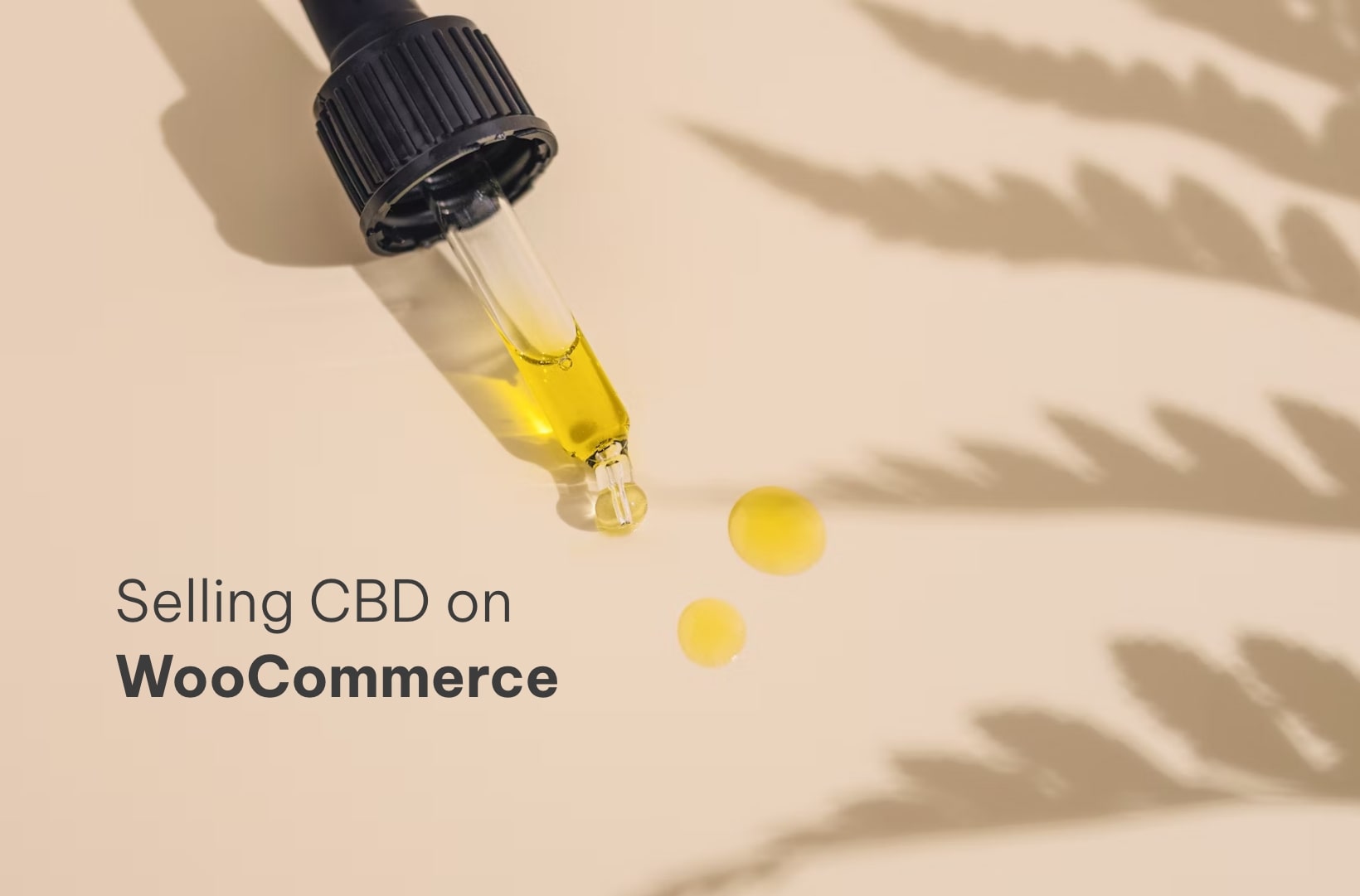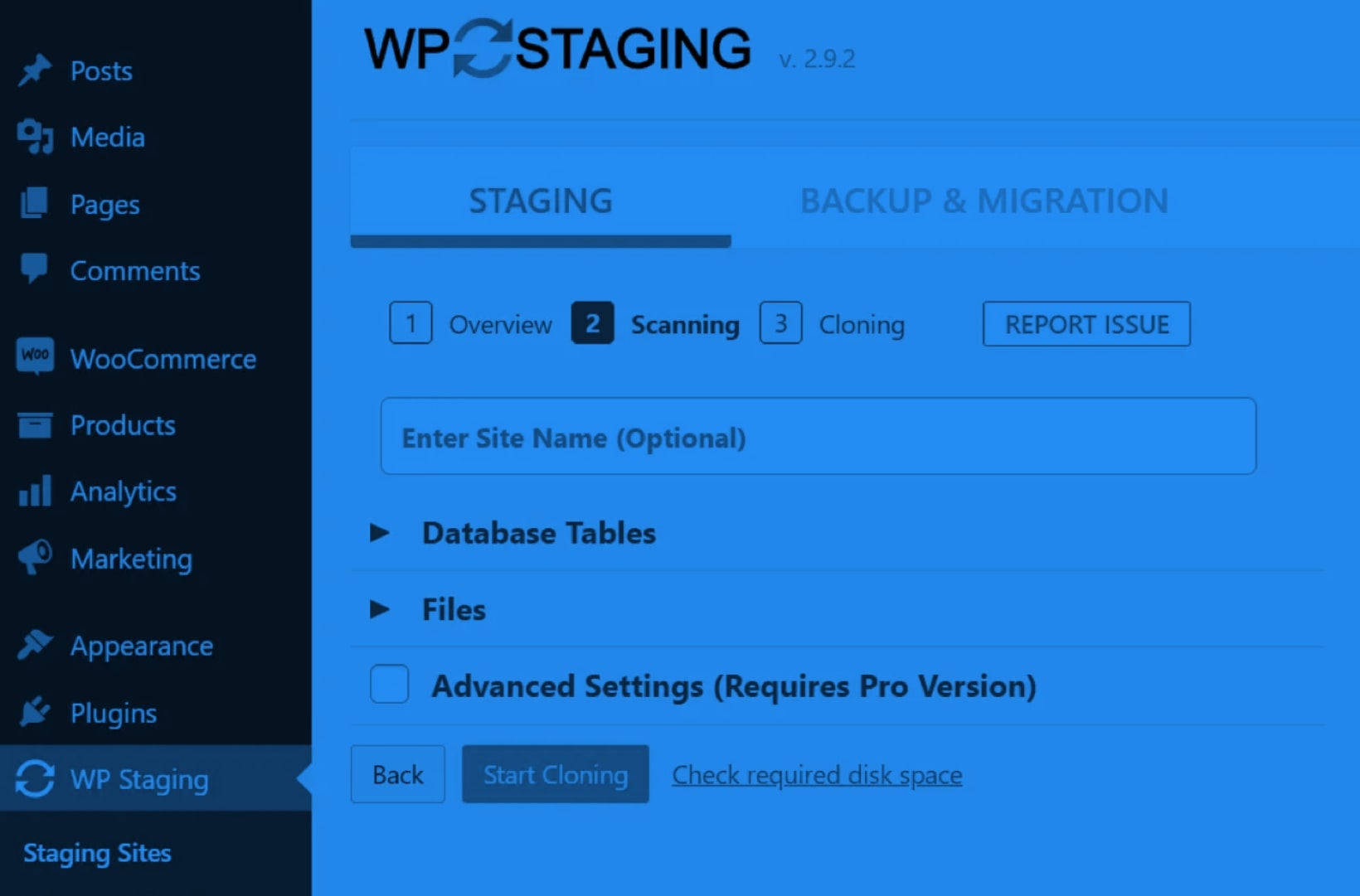The recent surge in the popularity of CBD-derived products, such as oils, tinctures, topicals, and edibles, has opened up a new frontier in eCommerce. With an increasing number of consumers turning to these products for their potential health benefits, there’s a substantial market opportunity for entrepreneurs ready to navigate this emerging industry.
However, selling CBD online isn’t as straightforward as other products due to a complex landscape of legalities in various jurisdictions. Consider this article your map through the occasionally foggy legal landscape of online CBD sales.
Here, we’ll explore the integral components involved in setting up a WooCommerce store designed to sell CBD products effectively. From choosing the appropriate theme to integrating reliable payment gateways, we’ll help you construct a successful online CBD store.
We’ll also look at the logistical complexities of shipping and share some strategies to deal with those. Last, but not least, we’ll explore techniques for effectively marketing your store, and successfully grapple with the intricacies of social media advertising.
Take a moment to settle in. We’re about to dive into the fascinating, yet demanding realm of selling CBD products using WooCommerce!
Understanding CBD and hemp legalities
The journey to selling CBD and hemp-derived products online isn’t without its fair share of legal hoops. In this section, we’ll provide an overview of the legal landscape in various parts of the world, focusing predominantly on the United States and the European Union, while also casting a glance at other significant regions.
Bear in mind, this isn’t legal advice; it’s simply an overview meant to acquaint you with the complexities of selling CBD products.
Always conduct thorough research and seek legal counsel to ensure compliance with your local regulatory bodies, as non-compliance can lead to criminal offenses.
CBD: Hemp vs. marijuana
The first point to understand is the difference between hemp-derived CBD and marijuana-derived CBD. The key distinction lies in the levels of tetrahydrocannabinol (THC), the psychoactive substance found in cannabis plants.
While both hemp and marijuana contain CBD, hemp has a significantly higher ratio of CBD to THC. This difference is crucial when considering the legalities of CBD products.
U.S. federal and state regulations
In the United States, the legal status of CBD products is determined by their THC content. The 2018 Farm Bill legalized the sale of hemp-derived products, defining “hemp” as cannabis plants with less than 0.3% THC. Therefore, CBD products derived from hemp plants meeting these standards are legal in the majority of the United States.
However, products containing more than 0.3% THC are still classified as Schedule I controlled substances by the federal government, despite being legal in some states. It’s essential to note that the U.S. Food and Drug Administration (FDA) still regulates CBD products, and legal advice should be sought before selling these products. In many states, a license is required to sell CBD products.
State-specific regulations are another critical factor to consider. Some states impose stricter rules than the federal guidelines, particularly concerning the THC content of CBD products. Therefore, always check the regulations in your specific state before setting up your WooCommerce store for CBD and hemp-derived products.
European Union regulations
In the European Union, the situation is slightly different. While the EU also differentiates between hemp and marijuana, the maximum allowed THC content for hemp is lower, at 0.2%. In addition, some EU countries have their own regulations regarding CBD products, so it’s important to check the laws in your specific country.
The legalities surrounding the sale of CBD products vary across EU member states. At an overarching level, the European Food Safety Authority has not officially registered CBD. However, as of February 2021, the EU no longer considers CBD extracted from hemp, with a THC content capped at 0.3%, to be a “drug”. Similar to the U.S., many member states require a license to sell CBD products.
To stay updated on CBD regulations, it’s important to check resources like the Novel Food Catalogue and the European Monitoring Centre for Drugs and Drug Addiction (EMCDDA). Another crucial organization is the European Industrial Hemp Association (EIHA), which plays a significant role in regulating hemp-derived CBD products in the EU.
However, it’s vital to remember that individual member state regulations can be stricter than EU guidelines. For instance, Portugal, Malta, and Finland only allow CBD with a prescription. In Spain, CBD oil can be sold as a cosmetic but not as a consumable.
In the UK, which is no longer a member of the EU, but is still relevant to this discussion, the sale of CBD oil is permitted only if it’s entirely free of THC.
Outside the U.S. and EU
Beyond the U.S. and EU, the legal status of CBD and hemp-derived products varies widely. In Canada, for example, CBD is legal but regulated under the Cannabis Act. In Australia, CBD products are legal but are considered a Schedule 4 drug, meaning they require a doctor’s prescription. In Japan, CBD products are legal as long as they contain no THC.
Regardless of the country, it’s crucial to conduct thorough research on local laws and regulations before selling CBD products.
Throughout your journey of selling CBD products using WooCommerce, the key takeaway is to ensure compliance with all relevant laws and regulations. While the legal landscape may seem complex, staying informed and updated with the latest changes can help you navigate this promising market successfully.

Setting up your WooCommerce CBD store
Having navigated the labyrinth of CBD laws and regulations, it’s time to turn your focus toward the exciting task of setting up your WooCommerce store. Let’s look at the key considerations specific to establishing a WooCommerce platform for selling CBD and hemp-derived products.
Choosing the right hosting provider
One of the first steps in setting up your WooCommerce CBD store is selecting a suitable hosting provider. It’s crucial to choose a provider that supports the sale of CBD products and understands the industry regulations. Kostas Seresiotis, Senior Product Engineer at Saucal, says:
Not all hosts or payment solutions allow stores that sell CBD related products, so planning ahead and picking the right partners & solutions from the get-go can be crucial to success.
When selecting a hosting provider, consider the following key features:
- Security: As you’ll be handling sensitive customer data, it’s essential to choose a provider that offers robust security measures to protect your site against potential threats.
- Scalability: As your business grows, your hosting needs may change. A good hosting provider should be able to scale its services to accommodate your growing needs.
- Performance: The speed and uptime of your site can significantly impact your customer’s shopping experience and your site’s SEO. Therefore, choose a provider that guarantees excellent performance.
- WooCommerce specialization: Opting for a hosting provider that specializes in WooCommerce can be beneficial as they’ll be more familiar with the platform and can provide better support.
At Saucal, we’ve partnered with various WooCommerce hosting providers, and our managed WooCommerce services include hosting with Convesio. We have also worked with other premium hosting providers such as WPVIP and Kinsta, and we would be happy to discuss your hosting needs. Our team can help you understand the multiple options and choose the best provider for your WooCommerce CBD store.
Selecting a compliant payment gateway
While WooCommerce, as an open-source plugin, does not restrict its basic functionality to CBD-derived products, the payment processors used to handle transactions on WooCommerce stores may have different guidelines.
This includes WooCommerce Payments, which currently prohibits the sale of any CBD products through its system, although they are reportedly working on changing this.
Finding a payment gateway that supports CBD transactions can be challenging due to the industry’s legal complexities and associated risk factors. It’s crucial to select a gateway that is familiar with CBD regulations and compliant with the laws of the jurisdictions where you intend to operate your store.
If you’re setting up a WooCommerce store on WordPress.com or Pressable, note that the only allowed payment providers are Square (in the U.S.) or Viva Wallet (in Greece, Portugal, Italy, France, and Poland).
To tailor the payment gateway solution to the specific needs of your CBD store, consider using custom extension development services. At Saucal, we can help you develop a tailored solution that fits your business needs while ensuring compliance with all relevant regulations.
Maintaining a transparent relationship with your chosen payment gateway provider and staying updated on payment processing regulations are crucial for the smooth operation of your WooCommerce CBD store. This will not only help you avoid potential legal issues but also ensure a seamless shopping experience for your customers.
Shipping, taxes, and compliance management
As you continue on your journey to establish your WooCommerce CBD store, shipping, taxes, and compliance management come into the picture. This is the stage where your business crosses over from the digital realm to the physical, impacting both your bottom line and your customers’ satisfaction.
Shipping restrictions and best practices
The logistics of shipping CBD products require an integral understanding of region-specific restrictions, both within the U.S. and internationally. They encompass various facets like the THC content in your product, the total volume you’re shipping, testing requirements, and more.
Some of the factors that impact shipping for a WooCommerce store selling CBD include:
- The nature of your product plays a pivotal role in shipping logistics. The product type and its concentration can significantly influence which shipping rules and regulations apply.
- The destination of your shipment also carries considerable weight. Different states within the U.S., and indeed different countries, have unique laws governing the shipment of CBD products. It’s crucial to thoroughly research and adhere to these regulations to prevent your shipments from getting seized or delayed.
- Best practices for packaging and labeling your CBD products are of paramount importance. The packaging should be secure and discreet to safeguard the product during transit. Labeling, on the other hand, should be clear and compliant with local regulations, providing all the necessary information without making unproven claims.
To ensure a smooth shipping process, partnering with reliable and compliant shipping carriers well-versed in CBD regulations is vital. They can offer valuable insights into the complex landscape of CBD shipping and help navigate potential hurdles.
Managing taxes and legal requirements
Managing taxes and other legal requirements involves accounting for relevant federal, state, and local regulations. Tax management plugins and software can simplify tax calculations and reporting for a WooCommerce store, making it easier to maintain compliance. They can automate the application of correct tax rates at checkout based on your customers’ locations, and generate comprehensive reports that make filing tax returns a more manageable task.
Best practices in transparency and compliance are equally important. Always ensure accurate record-keeping and timely tax filings to avoid potential penalties and maintain trust with your customers and regulatory authorities. Make it a habit to provide clear, detailed invoices to your customers, explicitly indicating tax charges. Additionally, routinely archive your transaction records, tax documents, and other related paperwork.
Keeping yourself updated on the tax laws and regulations within the CBD industry is imperative. This industry, more than many others, sees frequent legislative updates as new research emerges and societal attitudes evolve. Subscribing to industry newsletters, attending webinars, and engaging in CBD business communities can help you stay informed.
Having said that, remember that while this guide offers a general overview, professional advice tailored to your specific situation is indispensable. Always seek advice from a qualified legal or tax professional before selling or shipping your first product.
With a careful, proactive approach, you can successfully manage taxes and legal requirements, ensuring your WooCommerce CBD store not only survives but thrives in the industry!
Marketing and advertising your CBD store
Navigating the world of marketing and advertising for a WooCommerce CBD store can feel like traversing a labyrinth, filled with regulatory twists and turns.
However, with a strong understanding of advertising restrictions and a commitment to ensuring product labeling meets all legal requirements, it is indeed possible to chart a successful course.
Staying compliant with advertising restrictions
Understanding advertising restrictions for CBD products, both domestically and internationally, is paramount. For instance, since the FDA does not classify CBD products as drugs, any assertions pertaining to health benefits should be sidestepped. Misleading claims could land your business in hot water, both legally and reputationally.
The task is further complicated as advertising CBD products on major platforms like Google, Facebook, and Instagram presents significant challenges due to their stringent policies.
These hurdles, however, open the door to alternative marketing strategies. Content marketing, influencer partnerships, and email marketing can be effective ways to reach your target audience, and platforms like WordPress and WooCommerce are inherently supportive of these efforts.
Staying updated on advertising restrictions and best practices for the CBD industry is crucial. Saucal’s expert WooCommerce development and long-term support and maintenance services can help you manage marketing and advertising compliance for your CBD store effectively.
Labeling requirements and best practices
Adhering to labeling requirements for CBD products is another crucial aspect of running a WooCommerce CBD store. These requirements are set by regulatory bodies like the FDA and vary based on local laws and regulations.
Key labeling requirements for CBD products may include ingredient lists, concentration levels, and warning statements. However, these requirements can significantly vary from one jurisdiction to another.
Staying updated on labeling regulations and seeking professional advice when necessary is crucial. By ensuring your product labels are compliant, you can avoid potential legal issues and build trust with your customers.
Partner with Saucal’s team of Woo experts to sell CBD on your WooCommerce website
Setting up a successful and compliant WooCommerce CBD store involves understanding the industry’s legal complexities, selecting an appropriate hosting provider and payment gateway, managing shipping and taxes, and effectively marketing and advertising your products, all while staying compliant with industry regulations.
However, you don’t have to navigate these complexities alone. Partnering with Saucal’s expert WooCommerce team can provide invaluable support in building, enhancing, and maintaining a professional online store for CBD products. Our team can create tailored solutions that cater to the unique needs and challenges of the CBD industry, ensuring your store is compliant and primed for success.
Moreover, our long-term support and maintenance plans can provide ongoing assistance, ensuring your WooCommerce CBD store remains secure, optimized, and successful in the long run.
Navigating the CBD industry can be complex, but with the right support and guidance, you can set up a successful WooCommerce store that meets your business needs and complies with all necessary regulations.
Ready to take the next step?
Learn more about how our services can help you navigate the complexities of the CBD industry and achieve success with your WooCommerce store. Reach out to the Saucal team to see how we can help!


